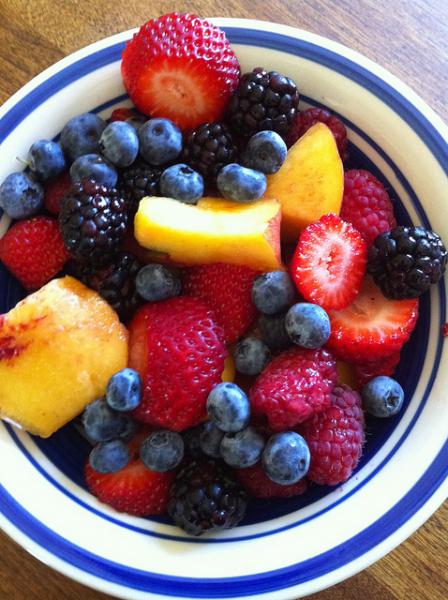What Is Intuitive Eating?

Food is a vital part of human life - we need it to grow, to subsist, to survive.
Since the beginning of mankind, people have used food to nourish themselves so they could thrive. Overtime, however, food has become more than a physiological necessity. It has become something attached to emotion on either side of a spectrum: a preoccupation for both those who uncontrollably eat and those who obsessively monitor what they consume.
Intuitive eating is a wellness philosophy that goes back to the core of the purpose of food: to eat when one is hungry, to stop when full, and to avoid getting caught up in unrealistic diets and food trends.
READ MORE: Surviving Dining Halls: A Vegetarian’s Guide
Lindsey Pine, a registered dietitian at USC, explains why people have diverged so far from the biological purpose of food. “Humans, specifically those in the Western world, have access to food all of the time, including a lot of cheap, unhealthy food. We hardly need to put any effort into obtaining food. With this ease of access to food, many of us have forgotten what true hunger feels like, and we end up eating because we’re bored, stressed, angry, sad, or even happy.”
READ MORE: Binge Eating Disorder: As Real As It Gets
In their book Intuitive Eating, Evelyn Tribole and Elyse Resch explain the ideas behind intuitive eating and how one can start naturally feeding the body. These are the basic principles:
1) Free yourself from dieting thoughts altogether.
Dieting is restrictive and counterproductive to intuitive eating. Getting caught up in different food trends will prevent one from being naturally in-tune with the body’s physical needs. This becomes more of a mental preoccupation.
2) Eat when you’re hungry, and stop when you’re full.
It sounds simple, but erratic eating patterns can cause overeating. Keep your body energized with the right amount of food it needs.
3) Don’t label foods as “good” or “bad.”
Avoid getting angry at yourself if you give into a craving. Trying to avoid “bad” foods will only cause feelings of deprivation, which could easily lead to bingeing in the long run.
4) Enjoy food for what it is.
The feeling of satisfaction when eating helps with being content from the experience. Being consciously aware of this means it will take less food to be satiated.
5) Manage your feelings without using food.
Even if food seems like a comforting solution at first, using it to avoid your problems might only make you feel worse later from eating too much.
6) Most importantly, respect your body.
Appreciate what your body can naturally do and make it a point to take care of it. Nurturing yourself will make you naturally feel good about who you are.
These principles, however, may be easier said than done. A student, who wishes to remain unnamed, considers the challenges of intuitive eating.
"I think the biggest challenge would be to not feel guilty about cravings or eating excessively if you're under stress, because a lot of that can hinder your progress if you try to adopt that philosophy," she says. However, she asserts that some effort is better than none, adding that, "It's healthier than just simply eating when you're bored. Despite the challenges, I think it would be beneficial to health in the long run."
Reach Staff Reporter Angela Shen here.



